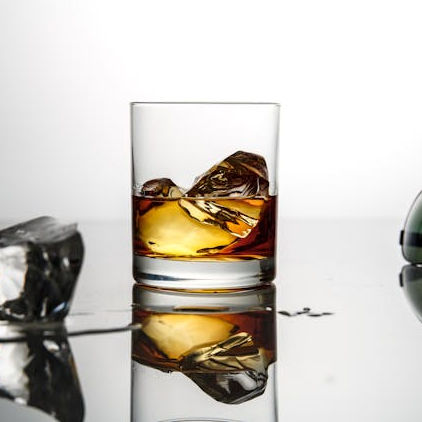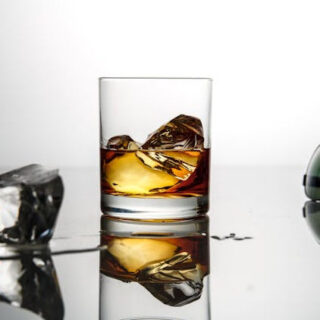
Can Alcohol Cause Rashes?

Alcohol consumption can have a significant impact on skin health, which can lead to conditions such as alcohol rash. Identifying symptoms early on and drinking in moderation can help prevent this condition.
Alcohol misuse is a significant risk factor for numerous health issues, many of which can lead to death, illness, and disability. Its effects go far beyond the well-known liver and heart problems impacting almost every organ in the body. One of the lesser-discussed consequences of excessive alcohol consumption is its impact on skin health. Alcohol-induced skin rashes clearly show how overuse of alcohol can have negative effects on the body’s largest organ – the skin. These rashes can vary in their severity and appearance but can be a telltale sign of the body’s adverse reaction to significant alcohol use.
In-Home Alcohol Addiction Recovery with Elite Home Detox
Elite Home Detox provides typical rehabilitation clinic services to the comfort of a patient’s home. Because each patient’s situation and demands are unique, our thorough treatment approach is personalized to the individual.
In-home alcohol addiction recovery is a modern option for today’s hectic, fast-paced lifestyles.
Table of Contents:
Alcohol-Induced Skin Rashes
Many different skin conditions can be triggered or made worse by alcohol consumption. Eczema, Psoriasis, and Rosacea are just a few conditions that can be affected. Each of these conditions reacts differently to alcohol, but the common denominator is the inflammatory response that alcohol causes, which can often lead to flare-ups or may make symptoms worse.
Individuals with eczema might notice increased dryness and flakiness, while those with psoriasis could see their patches become more pronounced and irritated after drinking. Rosacea is known for its facial redness and swelling. These can significantly flare up and result in a visible alcohol face rash. These reactions are partly due to the vasodilatory effect of alcohol, which increases blood flow to the skin, worsening redness and rash symptoms.
Alcohol also has an impact on the liver.

The liver plays a vital role in filtering toxins, and this ability is compromised with excessive alcohol consumption. This can potentially worsen the health of the skin and can contribute to the appearance of an alcoholic skin rash. This condition is visible proof of the liver struggling to process alcohol and other toxins.
Genetic predisposition and allergic reactions also play a role in how people’s skin can react to alcohol. Some people may have a genetic intolerance to alcohol. This can lead to immediate reactions such as flushing, itching, or the development of an alcohol allergy rash. These genetic factors, when combined with individual allergic responses to alcohol or its ingredients, can significantly influence the severity and frequency of skin rashes after drinking.
Symptoms and Causes of Alcohol-Related Skin Rashes
Alcohol-related skin rashes can cause various symptoms, including dryness, flakiness, and irritation. These symptoms are often a sign of the body’s adverse reaction to alcohol, with the skin acting as a visible indicator of a potential internal imbalance. People might notice redness, increased sensitivity, and, in some cases, swelling or hives that indicate an alcohol allergy rash or alcohol intolerance rash. These reactions vary in intensity, from mildly annoying to severe discomfort, and can have a significant effect on daily life.
Some of the most common symptoms of alcohol face rash include:
Redness – Some areas of the skin may appear redder than usual. This is usually especially noticeable in the face and neck regions.
Dryness – The skin may feel parched and dehydrated and may lack moisture even with regular application of hydrating lotions or creams.
Flakiness – There may be visible peeling or flaking of the skin, which can lead to discomfort and sensitivity.
Irritation – A general feeling of itchiness or discomfort on the skin may occur, which can lead to scratching and further skin damage.
Swelling – Some areas, especially around the rash, may swell due to increased inflammation.
Hives – These are raised, itchy welts on the skin and usually indicate an allergic reaction.
Sensitivity – Increased sensitivity to skincare products or environmental factors can occur, which may lead to a burning or stinging sensation upon contact.
Warmth – The affected skin areas may feel unusually warm to the touch, which is another sign of inflammation.
Blisters – In some severe cases, small blisters may form on the skin. These may be filled with clear or yellowish fluid.
Discoloration – Skin may show patches of discoloration, with some areas lighter or darker than the surrounding skin. The skin may also turn red due to the vasodilation effect of alcohol.
Tightness – Skin can often have the sensation of being tight or stretched, often due to dryness and lack of hydration due to an alcoholic skin rash.
Eczema flare-ups – Those with existing eczema may experience episodes of intense itching, redness, and irritation that can occur as a result of a rash from drinking alcohol.
Rosacea outbreaks – Flushing and redness, particularly on the face, can worsen and may be accompanied by acne-like bumps for anyone who already suffers from Rosacea.
Psoriasis plaques – Thickened, scaly patches of skin may become more pronounced after drinking alcohol in those who suffer from this condition.
The causes of alcohol poisoning rash can be caused by many factors. Oxidative stress plays a very significant role in this process. When alcohol is metabolized, it creates free radicals that can damage skin cells. This damage can worsen existing skin conditions or trigger new rashes. Inflammation is another important factor. Alcohol increases the inflammatory response in the body, which can directly contribute to the development or worsening of skin rashes. These inflammatory effects are especially evident in conditions like psoriasis and eczema, in which alcohol can trigger flare-ups.
Genetic intolerance to alcohol is a further cause behind these rashes. Some people don’t have the necessary enzymes required for breaking down alcohol efficiently, leading to an accumulation of acetaldehyde, a toxic byproduct of alcohol metabolism. When this substance builds up in the system, it can cause immediate skin reactions, such as flushing, itching, and the appearance of an alcohol face rash. An alcohol intolerance rash typically occurs soon after the first drink and may be accompanied by other symptoms, such as nausea and headaches.
Preventing and Treating Alcohol-Related Skin Rashes
If you are concerned about an alcohol allergy rash, it is important to take proper steps to both prevent and manage this condition. Incorporating proper skin care and lifestyle modifications can help reduce the frequency and severity of an alcohol withdrawal rash.
One of the most important things that you can do is limit your alcohol intake. This will help prevent rashes from occurring in the first place. By limiting the amount of alcohol that is consumed, people can significantly reduce their risk of triggering or exacerbating skin rashes. This moderation is essential for anyone who has a known sensitivity or history of skin reactions related to alcohol use.
Another important technique is increasing your body’s hydration. Alcohol is a diuretic, which means that it can lead to increased urine production and, ultimately, dehydration. To counteract this effect, it is crucial to increase water intake before, during, and after drinking. Doing so can go a long way toward helping maintain skin hydration and overall health. Well-hydrated skin is less prone to dryness, flakiness, and irritation, which can reduce the likelihood and severity of an alcoholic skin rash.
Here are some quick tips for preventing a rash from alcohol:
Stay Hydrated – Drink plenty of water before, during, and after drinking alcohol to counteract the effects of dehydration.
Moderate Alcohol Intake – Limit alcohol consumption to reduce the risk of a rash.
Balanced Diet – Incorporate foods that are rich in antioxidants and omega-3 fatty acids to support skin health.
Skincare Routine – Maintain a daily skincare routine that includes gentle cleansing and moisturizing to strengthen and hydrate the skin.
Use Sunscreen – Protect skin from UV damage, which can be exacerbated by alcohol consumption, by applying sunscreen daily.
Avoid Known Triggers – Stay away from specific types of alcohol that have previously triggered rashes.
Rest and Recover – Ensure adequate sleep and recovery time between drinking sessions to help the body and skin heal.
Monitor Skin Condition – Pay attention to how your skin reacts to alcohol and adjust your consumption accordingly.
Use Hypoallergenic Products – Opt for skincare and makeup products labeled as hypoallergenic to minimize irritation.
Consult a Dermatologist – If you have existing skin conditions, get advice on alcohol consumption and preventive skin care techniques.
When it comes to alcohol allergy rash treatment options, there are numerous over-the-counter and prescription remedies available. Moisturizers play an important role in hydrating and restoring the skin’s natural barrier. This helps lock in moisture and protect the skin from external irritants. Look for products with hyaluronic acid, ceramides, and glycerin for maximum results.
Topical creams, especially ones with anti-inflammatory properties, can help minimize rash symptoms like redness and itching. For anyone who is experiencing an alcohol allergy rash, oral antihistamines can also be highly effective in reducing allergic reactions and providing relief from intense itching.
Here are some available options to help treat an alcohol face rash:
Topical Corticosteroids – To reduce inflammation and itching, try mild corticosteroid creams, which are available over the counter.
Moisturizers – Use products rich in ceramides, hyaluronic acid, and glycerin to hydrate and repair the skin barrier.
Antihistamines – Oral antihistamines can relieve itching and reduce allergic reactions that are associated with an alcohol allergy rash.
Hydrocortisone Cream – Helps to soothe mild irritation and reduce redness in affected areas.
Aloe Vera Gel – Has natural soothing properties that help to calm irritated skin and provide moisture.
Calamine Lotion – Offers cooling relief for itchiness and irritation.
Stronger Topical Corticosteroids – These are usually prescribed for more severe cases of inflammation and itching but are not relieved by OTC options.
Oatmeal Baths – Colloidal oatmeal baths can soothe and relieve itchy, irritated skin.
Immunomodulators – Tacrolimus and pimecrolimus are used for treating inflammation without the side effects of steroids, especially on sensitive facial skin.
Oral Corticosteroids – Most often used for short-term relief of severe allergic reactions or extensive rashes.
Biologic Drugs – For severe cases of psoriasis or eczema that have been made worse by alcohol, these drugs can target specific parts of the immune system to bring relief.
Laser Therapy – Used for certain types of persistent alcohol-induced Rosacea or other skin conditions that don’t respond well to topical treatments.
Alcohol and Its Impact on the Skin
The impact that alcohol has on a person goes far beyond just the immediate effects. It can have a lasting influence on the health of the skin. Conditions such as alcohol poisoning rash and alcohol withdrawal rash are proof of the toll alcohol takes on the skin. Moderating alcohol intake and implementing proactive skin care strategies are key steps in minimizing these negative effects. By prioritizing skin health and making informed choices about alcohol consumption, people can protect themselves against the detrimental impacts of alcohol, ensuring healthier skin and better well-being.
In-Home Alcohol Addiction Recovery with Elite Home Detox
Elite Home Detox brings the services of a traditional rehabilitation clinic to the comfort of a patient’s home. Since every patient’s circumstances and needs are different, our comprehensive treatment plan is tailored to the individual.
In-home alcohol addiction recovery is a modern solution for the busy, fast-paced lifestyles of today.
Personalized attention
Unlike a traditional addiction rehabilitation clinic, where patients meet in groups, in-home rehab means that our patients get dedicated, one-on-one attention.
Elite Home Detox provides a 24/7 onsite medical professional to monitor the patient, make changes to the treatment plan as necessary, and answer any questions that the patient, friends, or family may have. We are with our patients every step of the way to ensure a safe and healthy recovery with long-lasting results.
Convenient and private
Both inpatient and outpatient clinics require patients to travel to their destination. This is not only costly, but it also requires a significant amount of the patient’s time. In-home addiction rehabilitation works with the patient’s schedule, minimizing disruptions while maximizing results.
Some people may find group therapy beneficial. However, since addiction recovery is an intense and involved process, many patients prefer discretion while rehabilitating. That’s why Elite Home Detox brings our services directly to our patients for unmatched convenience and privacy.
Comprehensive, quality care
From genetics to social environment, many factors can contribute to a person developing an addiction to alcohol. These same factors need to be addressed during alcohol addiction rehab for a successful and lasting recovery. From detox to counseling that helps patients develop healthy coping mechanisms, Elite Home Detox offers the same services and quality of care as traditional rehab clinics.
Our team is thoroughly trained in addiction recovery, and every program is overseen by our medical director to ensure quality care.


